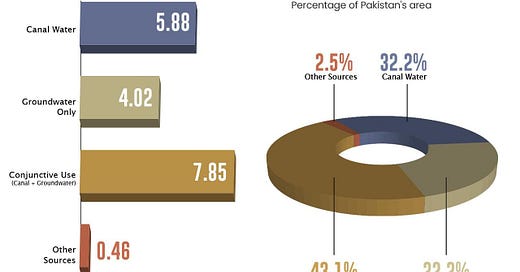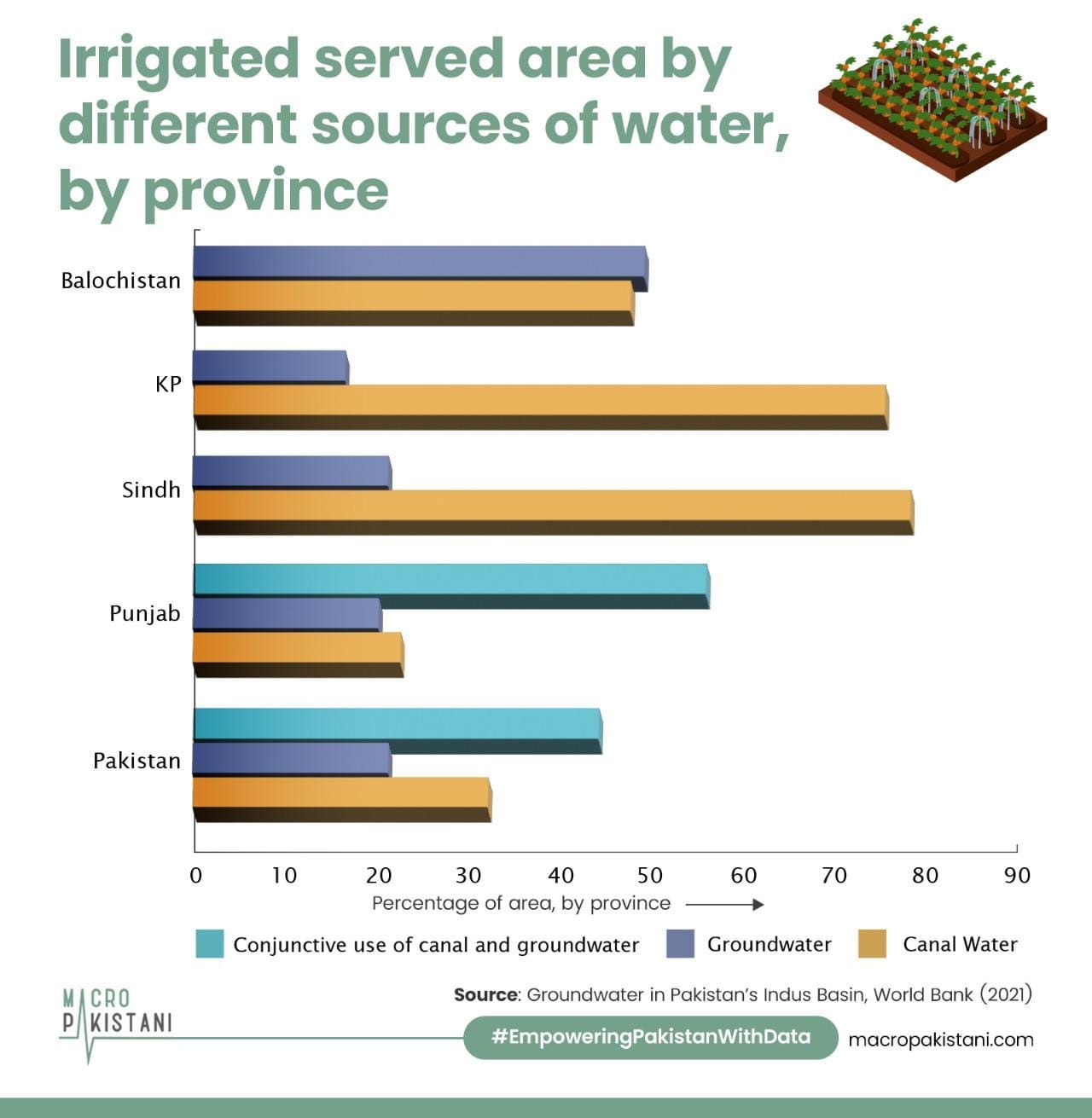Green Pakistan, Parched Sindh
The PKR 211.34 billion Green Pakistan Initiative aims to irrigate 1.2 million acres in Punjab, but it threatens Pakistan’s ecological diversity, water resources, and provincial unity.

The Indus Basin Irrigation System (IBIS) is the backbone of Pakistan’s agricultural economy, supporting food security, industrial growth, and rural livelihoods. As one of the world’s largest irrigation networks, it transforms arid lands into fertile fields, sustaining over 90% of the country’s agricultural output and significantly contributing to Punjab and Sindh’s Gross Provincial Income (GPI). However, IBIS faces serious environmental and geopolitical challenges. Climate change, erratic monsoons, and inefficient irrigation further threaten long-term sustainability. In response, Pakistan has launched initiatives like the Green Pakistan Initiative (GPI) to promote climate-resilient agriculture, water conservation, and afforestation. By integrating IBIS with sustainable water management policies and modern irrigation techniques, such initiatives aim to secure Pakistan’s agricultural future. But, the Green Pakistan Initiative, especially the Cholistan Canal Project, forebodes threats to water conservation and agriculture efforts in Pakistan. The project has a top-down and bureaucratic approach, a lack of provincial consultation, and the potential to disproportionately benefit Punjab at the expense of Sindh, exaggerating existing water inequalities.
Conflicts over the Indus waters in Pakistan persist due to disputes between provinces and communities over distribution and access, challenging hydropower development despite institutions like WAPDA and IRSA. These conflicts stem from power asymmetry between upstream and downstream riparians, historical grievances, and concerns over equitable benefit-sharing. Water scarcity, worsened by mismanagement, climate change, and growing demand, further fuels tensions, with projections of declining Himalayan glaciers and erratic monsoons complicating availability. The Cholistan Canal Project has intensified interprovincial tensions, particularly with Sindh, which fears reduced water flow. It prioritizes export-oriented agribusiness over local farmers, with reports suggesting foreign investors, including from China and the Gulf, may benefit more than Pakistanis. Despite the 1991 Water Apportionment Accord and the 2018 National Water Policy, weak enforcement and provincial mistrust keep conflicts unresolved. Addressing these tensions requires stronger interprovincial negotiations and alignment of water policies to balance national development with local and regional equity.
The governance of the Indus River System is crucial for inter-provincial harmony, sustainable water management, and equitable distribution. The recent changes introduced through the IRSA Ordinance 2024 have sparked concerns regarding federal overreach and the dilution of provincial autonomy. Revitalizing CCI as the primary decision-making body and restoring the spirit of the IRSA Act 1992 can prevent conflicts and ensure a fair and sustainable approach to water governance. Inter-provincial trust, scientific water management, and participatory decision-making must drive future reforms rather than federal unilateralism.
GRAPHICS
Data Visualization & Marketing Partner: Brand Nib
Visit: https://macropakistani.com/advertise/
Grateful for the ever-growing list of collaborators!
About Us: Macro Pakistani is a data-driven research platform that aims to provide a basic understanding of Pakistan’s economy. If you have an interest in contemporary news but are currently overburdened with sensationalism and specialized vocabulary, we are the platform for you.
How are we doing? Please send us any questions, comments or suggestions by replying to this email.





Yes drought is upon us, water levels are dropping in Central Punjab …water management is best dome by involving the local communities. The State has messed up most of the water treaties, indifferent to our future. Correct worry about canals cut from the Indus, which can be seen in dire condition from the Sukkar bridge. Wake up establishment…